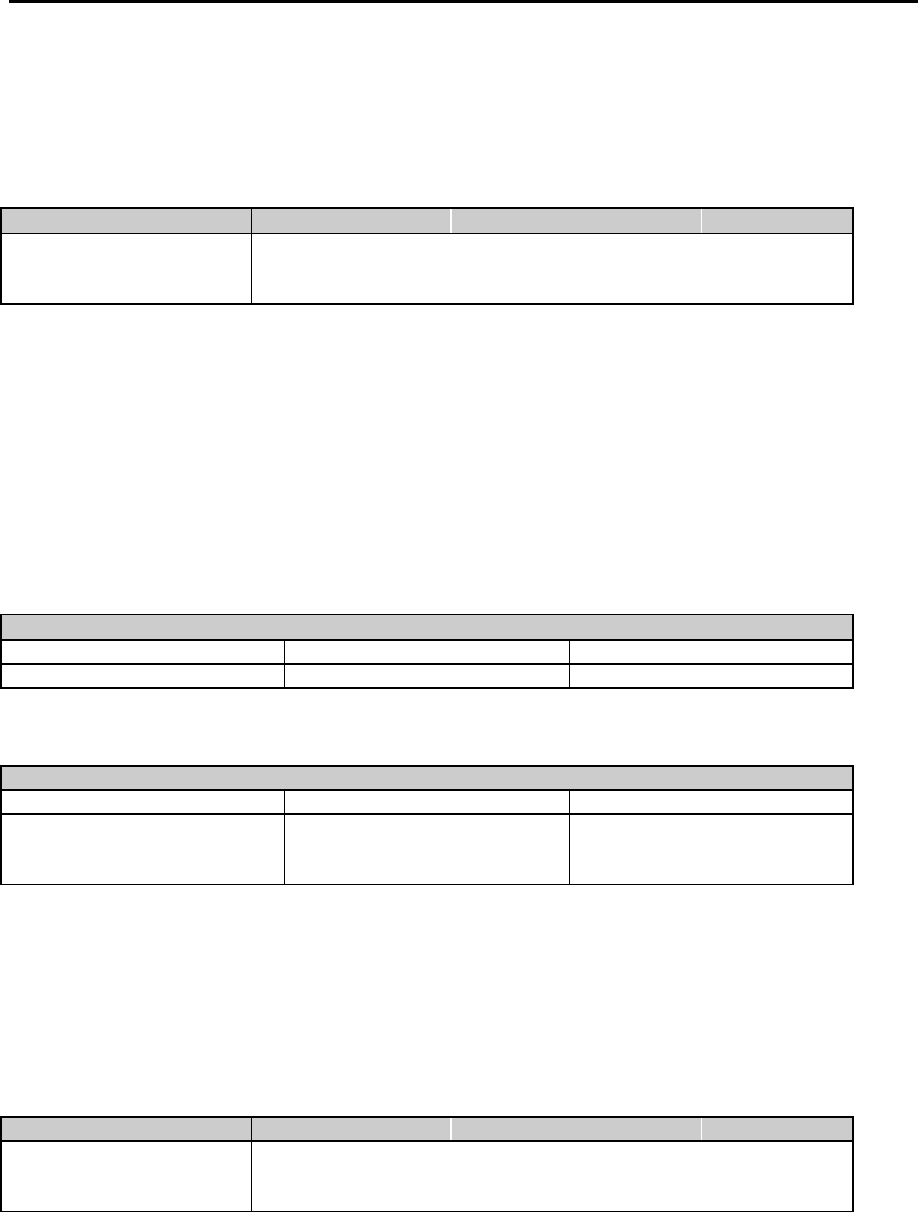
DCS SPECIAL APPLICATIONS
COMBINED PROGRAMMING MANUAL NOVEMBER 2001
3–7
• Stations with Toll Levels F or G applied will have no restrictions.
Use of Wild Cards and the Allowance Table
The Wild Card Table in MMC 704 appears as follows.
WILD CARD 0 1 2 3 4 5 6 7 8 9 * #
X 0 0 0 0 0 0 0 0 0 0 0 0
Y 0 0 0 0 0 0 0 0 0 0 0 0
Z 0 0 0 0 0 0 0 0 0 0 0 0
The digits 0–9, * and # are values that each of the wild cards X, Y and Z can take. This is
explained later. (You are also unlikely to use any wild card apart from X.)
In the Deny Table, the STD code 01 has been barred to users with a B or E Toll level. It may,
however, be necessary to allow some STD codes to be dialled. For example, the codes
01869, 01993, and 01235 are codes local to Oxford and you may want users in the Oxford
area to have access to these codes, with all other STD codes barred. You can achieve this
using the Wild Card Table and Toll Allowance Table as follows:
Delete entry 006 in the Deny Table and add the following entry:
TOLL DENY TABLE
ENTRY DIGITS B C D E F G
006 01XXX 1 1 1 1 0 0
and in the Toll Allowance Table make the following entries:
TOLL ALLOWANCE TABLE
ENTRY DIGITS B C D E F G
001 01869 1 1 1 1 0 0
002 01993 1 1 1 1 0 0
003 01235 1 1 1 1 0 0
In the above table, any station assigned a Toll level B, C, D or E will be allowed to dial only
01869, 01993 and 01235 numbers, but all other STD codes will be barred. Stations with a
Toll level F or G will be barred from dialling all STD codes.
The changes necessary in the Wild Card Table to implement these requirements are shown
below, where the Wild Card character X represents any value between 0 and 9 (i.e. a “1” is
placed in the field for any value that X is allowed to represent).
WILD CARD 0 1 2 3 4 5 6 7 8 9 # *
X 1 1 1 1 1 1 1 1 1 1 0 0
Y 0 0 0 0 0 0 0 0 0 0 0 0
Z 0 0 0 0 0 0 0 0 0 0 0 0


















